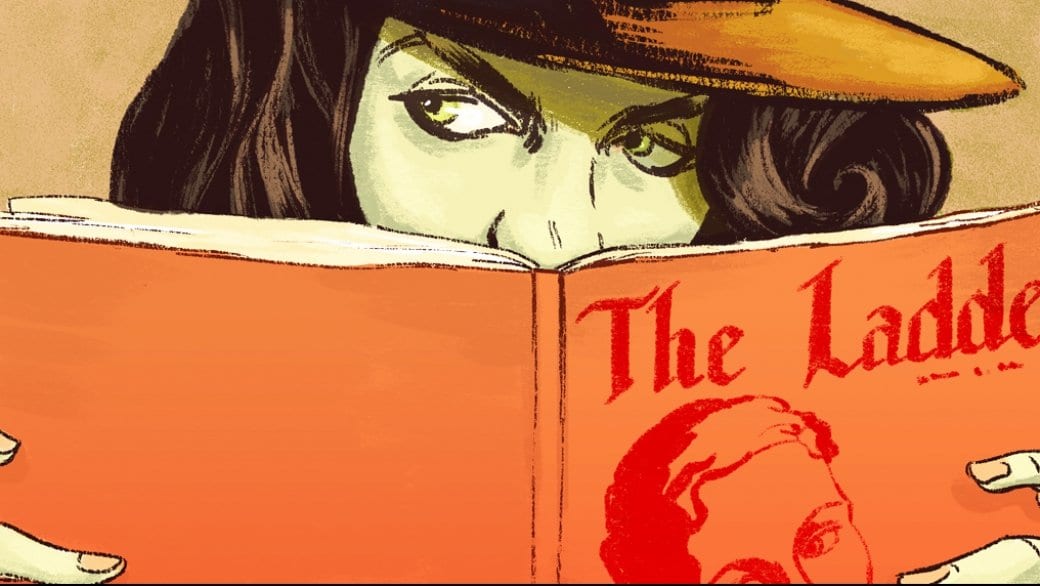In the United States in the 1950s, thousands of homosexual men and women lost their jobs or had their lives ruined because of McCarthyism.
A response to the fear of Soviet influence and Soviet spies in the period following the end of the Second World War, McCarthyism (named for its most memorable proponent, Republican senator Joseph McCarthy) was a Communist witch hunt. Often with little evidence, this movement saw many people including teachers, government workers, Hollywood film stars and screenwriters ousted from their jobs or sent to prison for supposed Communist ties.
McCarthyism also targeted homosexuals working government jobs or serving in the military, or persecuted them in other areas of their lives. Proponents of McCarthyism argued that homosexuality and Communism were in some way linked. They said that homosexuals were inherently subversive. They said that because homosexuality could get you fired from a government job, homosexuals could be blackmailed and controlled by Soviet spies.
The arguments for a link between homosexuality and Communism were all dubious at best (the blackmail concern loses its force when you consider that all the government needed to defuse the supposed threat was to make it a policy that nobody could be fired for being gay). What’s more likely is that the momentum of McCarthyism was seen as an opportunity to persecute an unpopular group.
Homosexuals — “sex perverts,” as they were called at the time — were considered mentally ill in 1950s America. And many considered homosexuals a threat to so-called American values and the traditional American family structure.
Whatever the justification behind it, the trumped-up homosexual threat was known as the Lavender Scare.
More gay men than lesbians lost their jobs and had their lives ruined because of their sexual orientation in this period, but that’s only because there were more men working the types of jobs that were targeted. Lesbians were hunted with just as much zeal. Lillian Faderman discusses how lesbians suffered in her 1991 book, Odd Girls and Twilight Lovers.
Since many schools wouldn’t allow women to study to become doctors or lawyers in the 1950s, many middle-class lesbians who wanted to maintain their social standing had little choice but to take government jobs like teaching or social work, making them a target of McCarthyism.
Government employees were investigated for signs of homosexuality, sometimes using a lie-detector test. A lesbian could be fired based on accusations alone, and had little to no recourse. And of course she then had to cope with bigotry once the world thought she was a lesbian — whether she actually was or not.
It was nearly impossible to put up any kind of resistance to this treatment. Even the American Civil Liberties Union did not oppose the federal government’s firing of gay and lesbian employees.
A 1954 issue of Jet, an African-American magazine, said this about lesbians: “If she so much as gets one foot into a good woman’s home with the intention of seducing her, she will leave no stone unturned . . . and eventually destroy her life for good.”
According to Faderman, some lesbians, who were expected by their families to marry and settle down, felt the need to arrange to marry gay men so that both parties could have a cover, hiding their true orientations from their parents, employers and nosey acquaintances. According to Daniel Rivers, author of Radical Relations: Lesbian Mothers, Gay Fathers, and Their Children in the United States since World War II, two women living together was less suspicious than two men, making it was easier for lesbians to pursue non-traditional relationships and live with other women or alone with their children.
However, there was some small pushback in the form of the Daughters of Bilitis (DOB), one of the first lesbian organization in the US. Founded in the mid-1950s as a private social group for middle-class lesbians, the organization became an activist group dedicated to promoting lesbian rights. It had several chapters across the country and a magazine called The Ladder.
The DOB kept member identities secret for safety, but it wasn’t long before the CIA and FBI had informants sneaking into meetings.
Many less affluent women chose a career in the military because there they could get training they wouldn’t otherwise get and travel the world. Unfortunately, the military was one of the most dangerous places for a woman to work if she was a lesbian — she could be kicked out without notice or even benefits.
According to Faderman, women in the US Navy were regularly given anti-lesbian lectures, and encouraged to inform on peers they thought were lesbians. Even military doctors and chaplains were supposed to help find and boot out lesbians.
Women in the Air Force were subject to similar treatment. They were routinely questioned, and some women had their possessions routinely (and without warning) searched for evidence of “homosexual tendencies.” You got in trouble even if you only had one encounter with another woman and even if it was years before joining up. Even being the friend of a lesbian was enough to get you in trouble.
Entrapment was routine in the military. Faderman says that during the Korean War (a conflict that ran from 1950 to 1953), women from the criminal investigation division were sent into lesbian bars as bait. Female agents were also put on military softball teams to catch lesbians.
Faderman’s book includes several firsthand accounts from women who lived and worked during the McCarthy era. The most brutal case she relates, from 1954, involves an army nurse and her lover. An officer accused them of being lesbians, and then, according to the nurse, the officer raped the nurse’s lover “to teach her how much better a man was than a woman.” He was not punished.
In January 2017, then-US Secretary of State John Kerry apologized for the persecution of LGBT State Department and foreign service officers who were gay.
The McCarthy era was traumatic for many lesbians. So much so that decades later, when Faderman was talking to people and gathering information for her book, she had to promise anonymity (and even with that promise, many were still afraid to speak). But Faderman points out a bit of an upside to it all. It forced women to band together, helping to create a subculture. And the persecution, awful though it was, gave publicity to lesbian desire, letting more women know that a lesbian life was possible.
History Boys appears on Daily Xtra on the first and third Tuesday of every month. You can also follow them on Facebook.


 Why you can trust Xtra
Why you can trust Xtra


